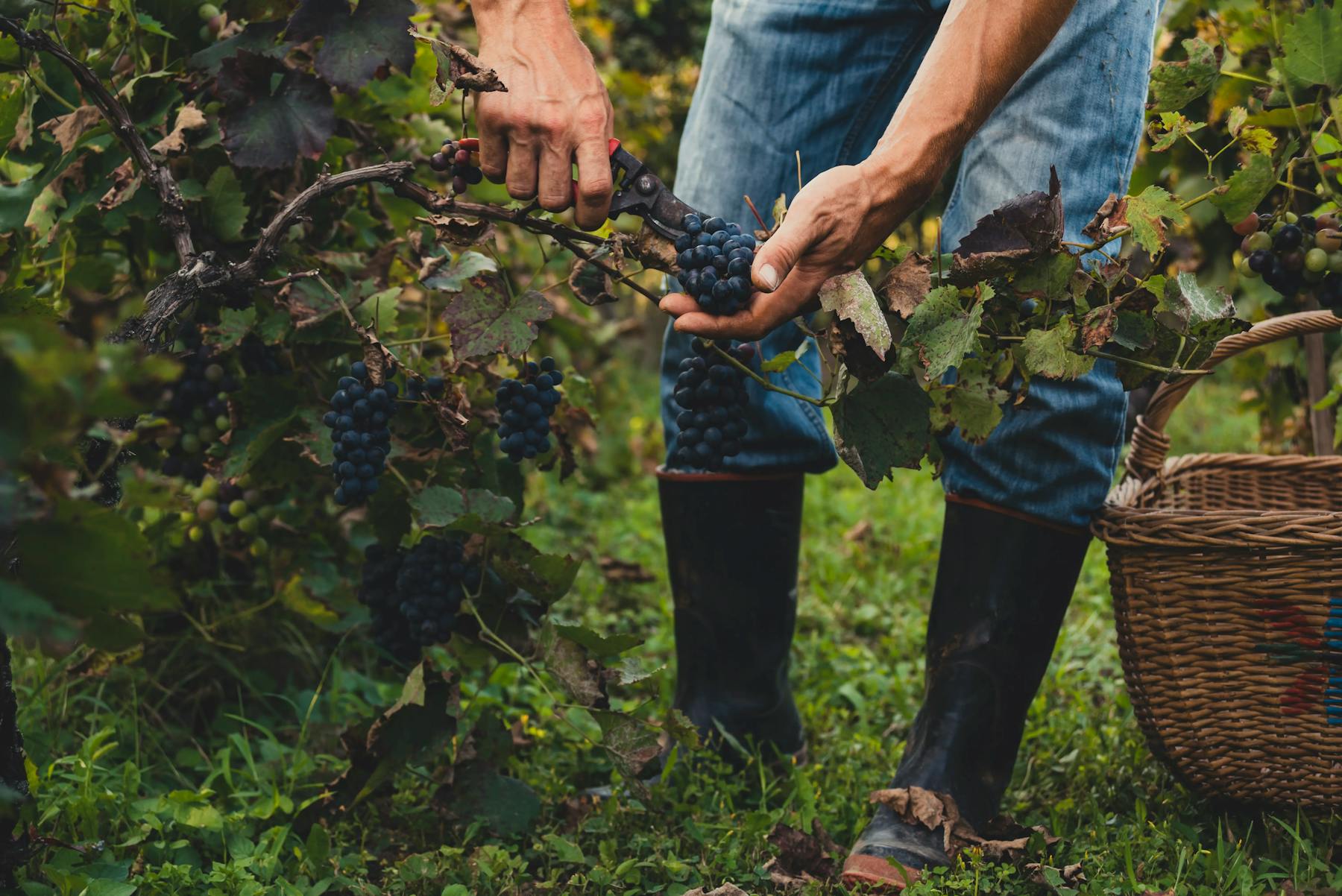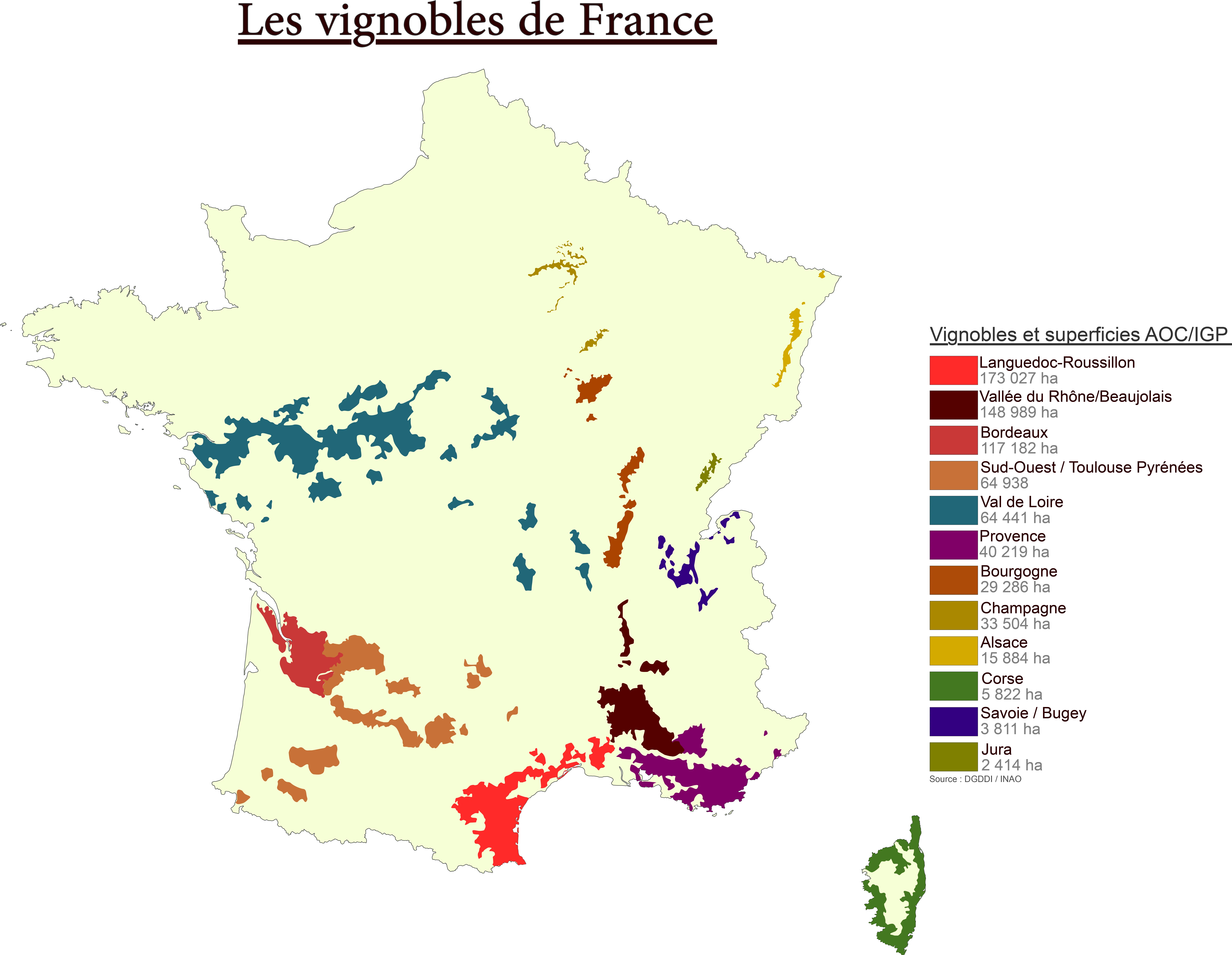- Wine world
Understanding wine classifications: AOC, IGP and other appellations
- Fri, Sep 13, 2024 at 10:00

What is wine classification?
Wine classifications are label systems that guarantee a wine's geographical origin, production methods and quality. They are set up to protect producers by guaranteeing product authenticity, and to inform consumers about the characteristics of the wines they buy. In France, the two main classifications are Appellation of Controlled Origin (AOC) and Protected Geographical Indication (IGP).
Appellation of Controlled Origin (AOC)
The Appellation of Controlled Origin (AOC) is a label that guarantees not only a wine's geographical origin, but also its quality and style. Created in 1935, the AOC is a benchmark for winemaking in France. This system ensures that the wine complies with strict standards in terms of grape varieties, winemaking methods and organoleptic characteristics.
AOC classification criteria
To obtain an AOC, a wine must meet several requirements:
- Geographical origin: the wine must come from a specific region, often a well-defined wine-growing area.
- Grape varieties: grape varieties must be those specified in the AOC specifications. For example, Bordeaux AOC may include grape varieties such as Merlot and Cabernet Sauvignon.
- Winemaking methods: production processes must comply with strict rules defined for each appellation. These may include traditional or region-specific methods.
- Quality standards: regular checks are carried out to ensure that the wine meets established quality criteria. Expert tastings are often used to verify compliance.
Some examples of famous AOCs
- AOC Bordeaux: renowned for its powerful red wines and grands crus.
- AOC Bourgogne: known for its elegant pinots noirs and refined chardonnays.
- AOC Châteauneuf-du-Pape: famous for its rich, spicy red wines.
Protected Geographical Indication (PGI)
The Protected Geographical Indication (PGI) is a label that offers greater flexibility in terms of production while guaranteeing a specific geographical origin. Created in 1992, the PGI allows wine producers to respect certain standards while enjoying a certain freedom in the choice of grape varieties and winemaking methods.
PGI classification criteria
The criteria for obtaining a PGI are less rigid than those for an AOC:
- Geographical origin: the wine must come from a defined region, but requirements concerning grape varieties and production methods are more flexible.
- Grape varieties: a wider range of authorized grape varieties, giving growers greater freedom.
- Winemaking methods: producers have more latitude in winemaking techniques, which can lead to a diversity of styles and flavors.
A few examples of well-known PGIs
- PGI Pays d'Oc: renowned for its fresh white wines and fruity reds.
- PGI Val de Loire: known for its wide range of wines, from dry whites to light reds.
- PGI Côtes de Gascogne: famous for its aromatic whites and refreshing rosés.
Other wine appellations and classifications
Vin de France
The Vin de France label is the most general of classifications. It allows great freedom in terms of grape varieties and geographical origin. Wines under this appellation can come from anywhere in France without any particular restrictions, which encourages innovation and creativity on the part of producers.
Vins de Pays
"Vins de Pays" are an intermediate classification between AOC and Vins de France. They indicate a more precise geographical origin than Vins de France, but offer greater flexibility in terms of grape varieties and production methods. "Vins de Pays" are often a good option for those looking for good value for money.
How to choose a wine according to its classification?
AOC: for lovers of tradition
AOC: for lovers of traditionIf you're looking for a wine with an established reputation and specific characteristics, AOC is often a guarantee of quality. AOC wines are produced in regions with centuries-old winemaking traditions, offering a guarantee of quality and authenticity.
PGI: for discovery and flexibility
For those open to exploration and looking for wines with good quality at often more affordable prices, PGIs offer an excellent opportunity. PGI wines allow producers to play with different grape varieties and techniques, which can lead to interesting discoveries.
Vin de France: for experimentation
If you're ready to experiment and are looking for wines at competitive prices, Vins de France offers a wide variety. They are often the ideal choice for everyday meals or for discovering new flavors without breaking the bank.
Wine classifications play a crucial role in the understanding and appreciation of French wines. Whether you opt for a prestigious AOC, a flexible PGI, or an innovative Vin de France, each label tells the story of the wine. By understanding these classifications, you can make more informed choices and discover wines that match your tastes and expectations.


